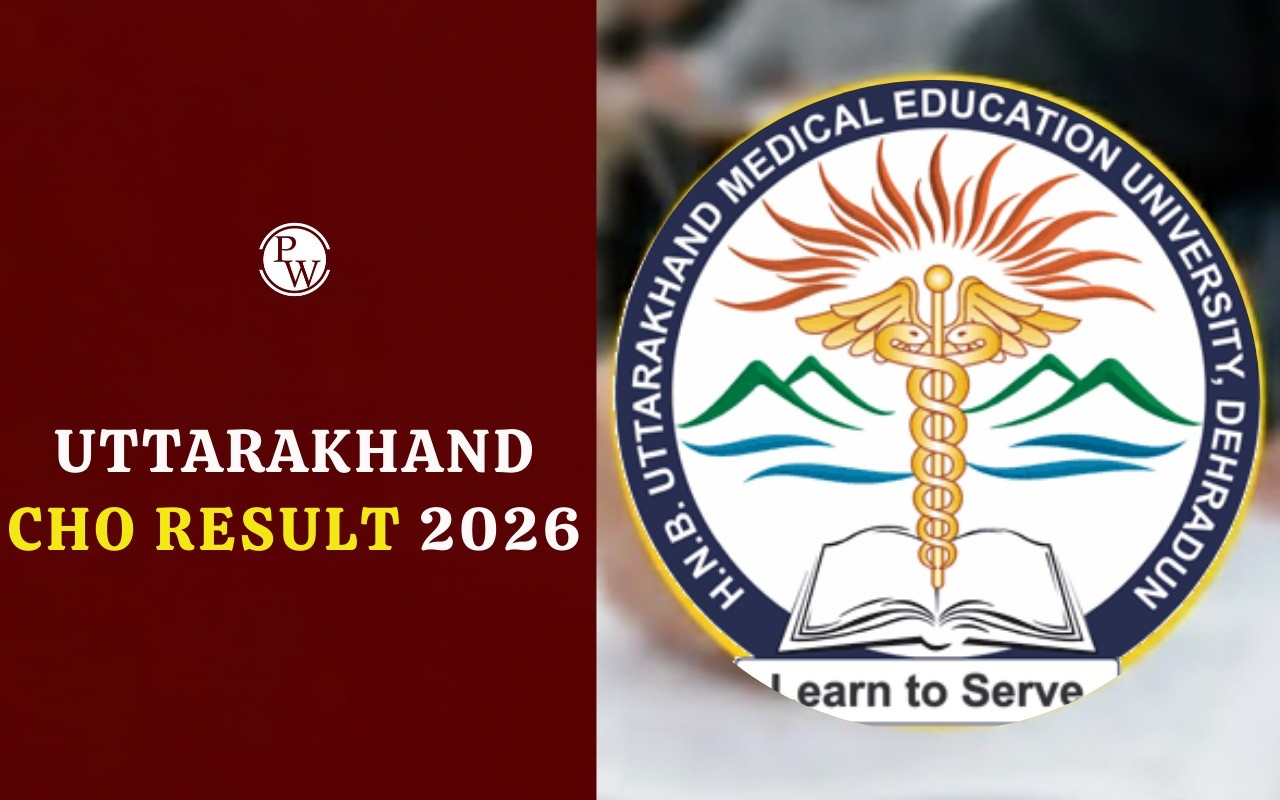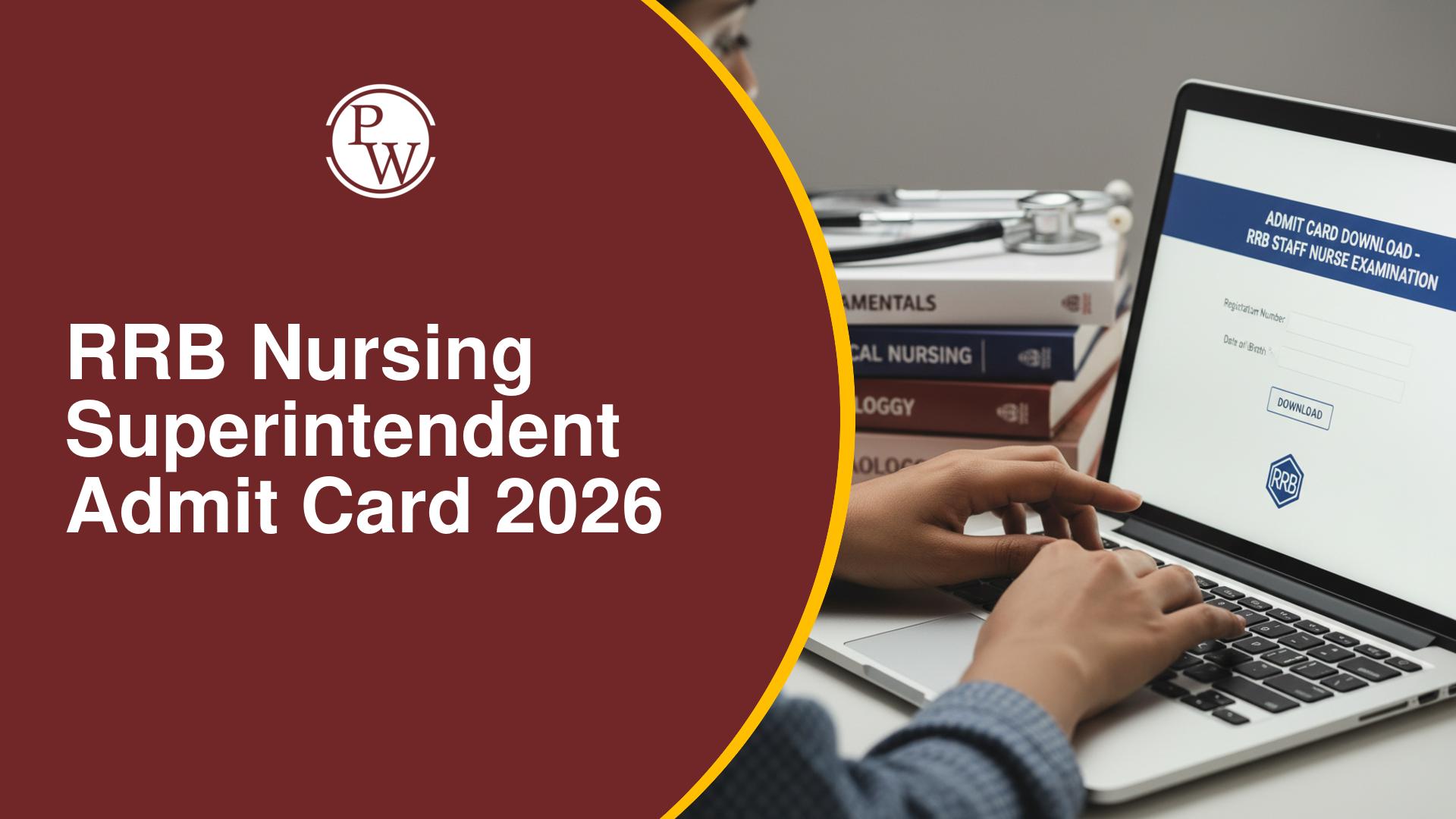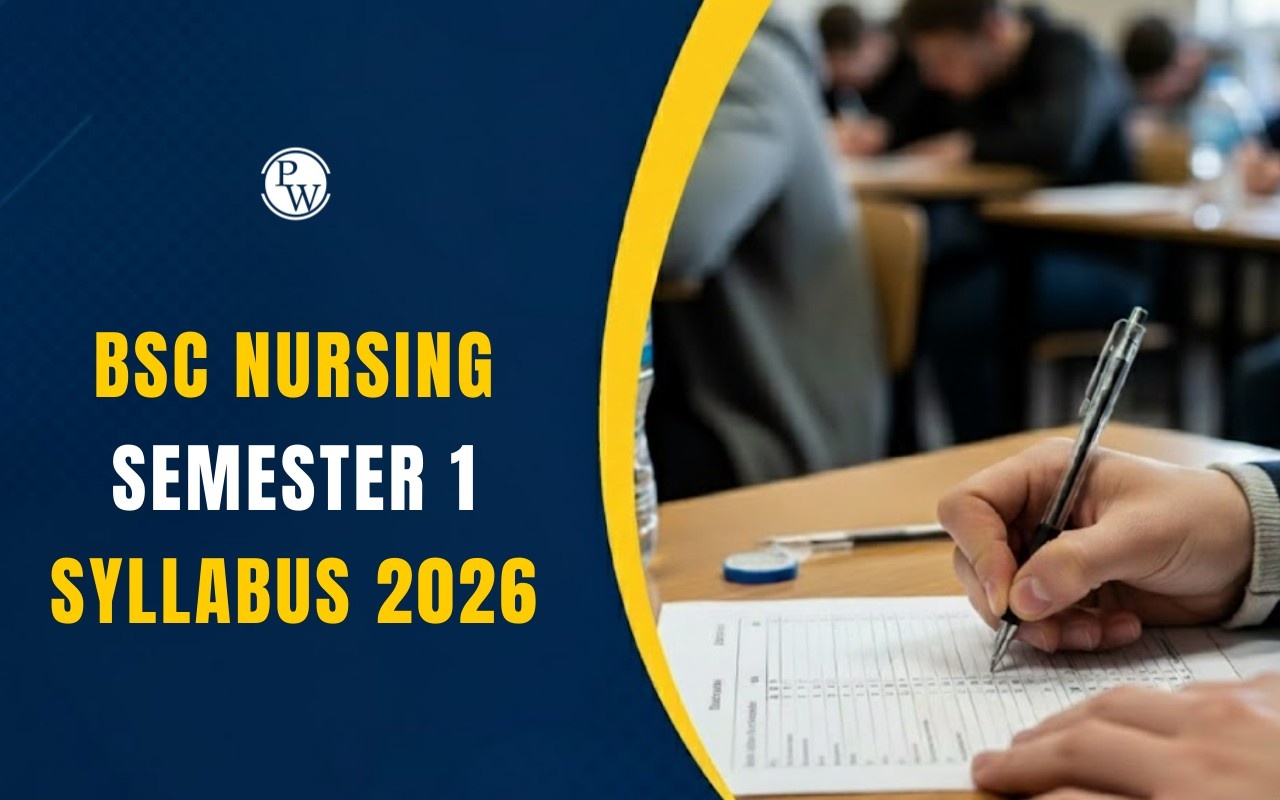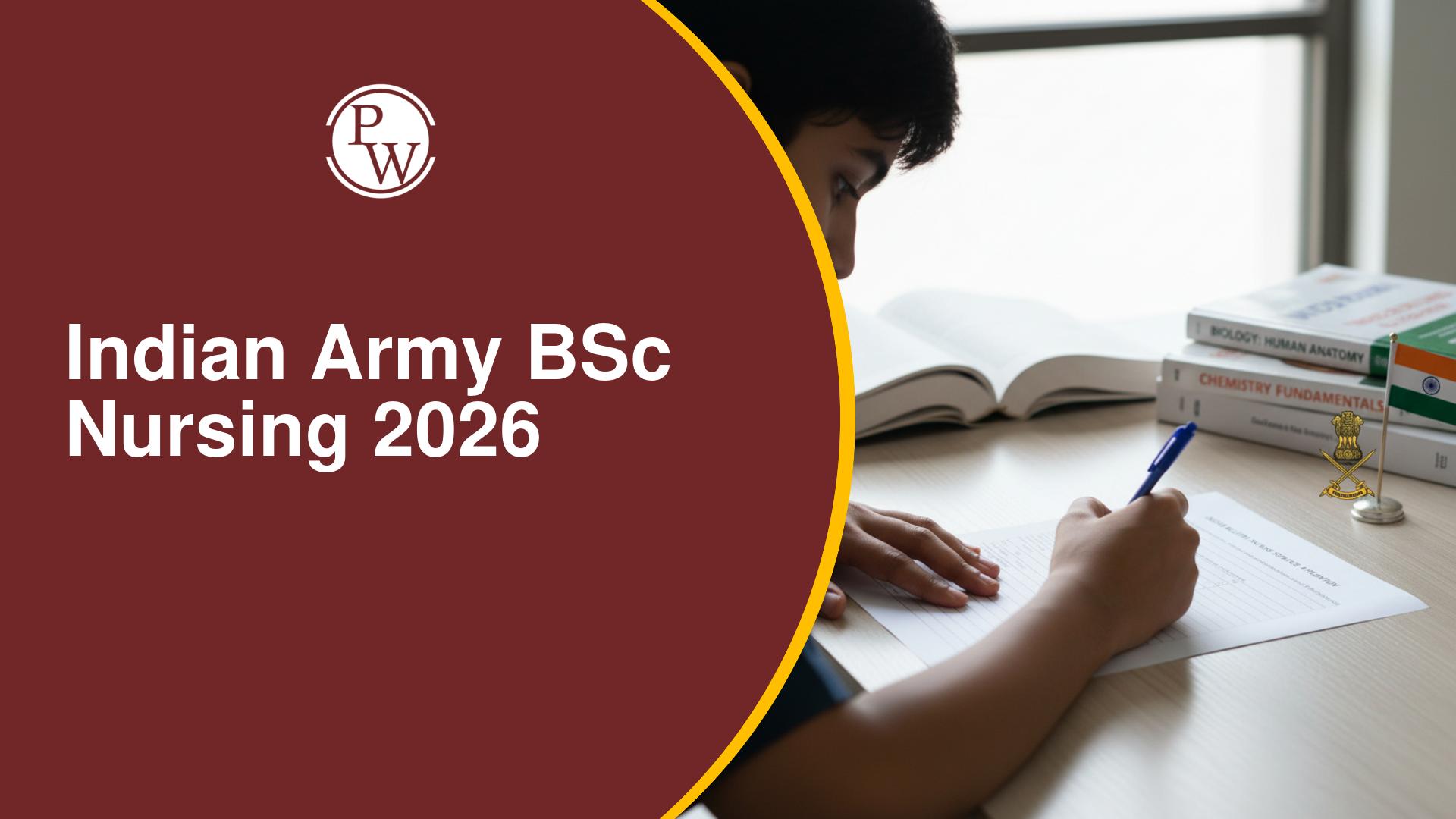
GNM 1st Year Syllabus 2025: The GNM 1st Year Syllabus encompasses four main subjects: Bioscience, Behavioral Science, Nursing Foundations, and Community Health Nursing. Bioscience includes Anatomy, Physiology, and Microbiology. Behavioral Sciences cover Psychology and Sociology. Nursing Foundations focus on Fundamentals of Nursing and First Aid. Community Health Nursing addresses Environmental Hygiene, Health Education, and Communication Skills.
The GNM 1st Year Syllabus includes diverse practical sessions covering Nutrition, Community Health Nursing, Nursing Foundation, Microbiology, and Computer Education. Notable authors such as Dr. Farukh Khan and Prof. Urmila Devi Bhardwaj, SK Maheshwari and Varinder Kaur, I Clement and Keshav Swarnkar contribute to subjects like Bio Sciences, Behavioral Sciences, Nursing Foundations, and Community Health Nursing respectively.
GNM 1st Year Syllabus 2025 Overview (INC Approved)
The GNM 1st Year Syllabus encompasses a range of essential subjects that lay the foundation for nursing education. This GNM Syllabus 2025 curriculum includes key topics such as Bio Sciences, Behavioral Sciences, Nursing Foundations, and Community Health Nursing, providing students with a comprehensive understanding of both theoretical and practical aspects of nursing. Below is a detailed INC Syllabus for GNM 1st Year overview of the subjects covered in the first year.
| Subjects | Details |
| Bio Sciences | Anatomy & Physiology and Microbiology |
| Behavioral Sciences | Psychology and Sociology |
| Nursing Foundations | Fundamentals of Nursing and First aid |
| Community Health Nursing | CHN-I, Environmental Hygiene, Health Education & Communication Skills, and Nutrition |
GNM 1st Year Subjects List 2025
In the GNM Nursing 1st Year curriculum wondering about "how many subjects in GNM 1st Year", the GNM subjects 1st Year include Bio Sciences, Behavioral Sciences, Nursing Foundations, and Community Health Nursing. Additionally, students engage in English, Computer Education, and Co-curricular activities. The Detailed GNM 1st Year Syllabus 2025 is tabulated below.
| Subjects | Theory (hours) | Practical (hours) |
| Bio Sciences - Anatomy & Physiology. - Microbiology |
120 90 30 |
|
| Behavioral Sciences - Psychology - Sociology |
60 40 20 |
|
| Nursing Foundations - Fundamentals of Nursing. - First aid |
210 190 20 |
200 (lab) 680(clinic) (22 weeks) |
| Community Health Nursing | 180 | 320 8 weeks |
| CHN-I | 80 | |
| Environmental Hygiene | 30 | |
| Health Education & Communication Skills | 40 | |
| Nutrition | 30 | |
| English | 30 | |
| Computer Education | 15 | 15 |
| Co-curricular activities | 10 | |
| Total | 625 (16 wks) | 1215 (30 wks) |
GNM 1st Year Detailed Syllabus (Subject-Wise Breakdown)
The GNM 1st Year Detailed Syllabus covers all subjects prescribed by INC, including Biological Sciences subjects GNM 1st Year, Behavioral Sciences, Fundamentals of Nursing, First Aid, Community Health Nursing-I, and Nutrition. Each subject is divided into clear units that explain core concepts, foundational nursing skills, and clinical competencies. This GNM 1st Semester Syllabus breakdown helps students understand exactly what topics they will study in theory and practice during the first year of the GNM course.
| Subject Area | Subject | Description | Key Topics |
|---|---|---|---|
| Bio-Science | Anatomy & Physiology | Delves into the structure and function of the human body, crucial for effective nursing care. | Anatomical terminology, body organization, circulatory system, respiratory system, digestive system. |
| Microbiology | Covers microorganisms, infections, immunity, and practical microbiology for infection control and management. | Microorganisms, infections, immunity, practical microbiology. | |
| Behavioral Sciences | Psychology | Explores human behavior dynamics and mental health concepts. | Mind structure, learning, personality, intelligence. |
| Sociology | Focuses on family dynamics and individual status within society. | Family units, community interactions. | |
| Nursing Foundations | Fundamentals of Nursing | Covers nursing principles and patient care essentials. | Patient assessment, infection control, therapeutic nursing care. |
| First Aid | Addresses community emergencies and first aid procedures. | Emergency response, first aid techniques. | |
| Community Health Nursing | Community Health Nursing - I | Introduces community health principles, health assessment, and family health nursing care. | Health assessment, epidemiology, family health nursing. |
| Environmental Hygiene | Explores the relationship between environmental health and nursing practice. | Environmental factors influencing health, community organizations. | |
| Health Education & Communication Skills | Focuses on health education principles and effective communication strategies. | Health education, communication skills, audio-visual aids. | |
| Nutrition | Covers dietary requirements, food preparation, and therapeutic diets, emphasizing nutrition's role in health. | Food classification, dietary requirements, community nutrition. |
GNM 1st Year Syllabus 2025: Core Subjects
GNM 1st year syllabus 2025 offers a mixture of theory and practical training. It includes core subjects like Bio-Sciences, Nursing Fundamentals, Community Health, Psychology, and supporting areas like First Aid, English, and Nutrition to build essential nursing skills. The table below contains core subjects of the GNM 1st Year Syllabus 2025:
|
Core Subjects |
|
|---|---|
|
Subject |
Details |
|
Anatomy & Physiology |
Explores the human body's structure and its functions. Suitable for those keen on medical science and biology. |
|
Microbiology |
Introduces microorganisms such as bacteria, viruses, fungi, and protozoa, and their effects on health. |
|
Psychology |
Provides knowledge about human behavior and how to analyze psychological patterns and responses. |
|
Sociology |
Examines social interactions, inequalities, and group behaviors to help nurses understand patient backgrounds. |
|
Fundamentals of Nursing |
Teaches essential nursing skills, patient care methods, ethics, cultural sensitivity, and effective communication. |
|
Community Health Nursing |
Equips students to assess community health needs and implement health programs and preventive care strategies. |
GNM 1st Year Practical & Nursing Lab Training
The GNM 1st Year Practical curriculum focuses on hands-on learning to complement theoretical knowledge. Below is a list of practical subjects designed to equip students with essential skills in nutrition, nursing foundations, microbiology, and community health nursing. GNM 1st year Practical Subjects are listed below.
| Practical Subjects | Practical Subjects |
| Nutrition | Community Health Nursing - I |
| Nursing Foundation | Microbiology |
| Computer Education |
GNM 1st Year Syllabus 2025 – Download PDF
The GNM 1st Year Syllabus 2025 PDF provides a complete breakdown of all subjects, units, and practical components prescribed by the Indian Nursing Council (INC). Students can download the updated syllabus to easily check theory topics, practical requirements, exam patterns, and semester-wise competencies in one place.
GNM 1st Year Marks Distribution
The GNM marks division provides a clear breakdown of the assessment criteria for each subject within the curriculum. The table below outlines the topics, marks distribution, and total marks allocated to each subject for GNM students.
| Subjects | Topics | Internal Assessment |
Council/ Board examination |
Total Marks | Weighatge |
| Bio Science | Anatomy & Physiology | 25 | 75 | 100 | 65% |
| Microbiology | 35% | ||||
| Behavioral Sciences | Psychology | 25 | 75 | 100 | 65% |
| Sociology | 35% | ||||
| Nursing Foundations | Fundamentals of Nursing | 25 | 75 | 100 | |
| First aid | |||||
| Community Health Nursing | CHN-I | 25 | 75 | 100 | 50% |
| Environmental Hygiene | 10% | ||||
| Health Education & Communication Skills | 25% | ||||
| Nutrition | 15% | ||||
| Practical – I Fundamental of Nursing |
100 | 50 | 50 |
GNM Top Colleges in India (Offering GNM 1st Year)
The GNM marks division outlines the assessment criteria for each subject within the curriculum. The table below details the GNM Top colleges for aspirants.
|
GNM Colleges |
Course Fees |
| Government Medical College, Kozhikode | INR 15,000 |
| Institute of Postgraduate Medical Education and Research (IPGMER), Kolkata | INR 45,000 |
| Government Medical College and Hospital, Chandigarh | INR 1,20,000 |
| Christian Medical College (CMC), Vellore | INR 70,000 |
| Christian Medical College (CMC), Ludhiana | INR 2,40,000 |
GNM 1st Year Books 2025
The GNM 1st Year Syllabus 2025 curriculum is supported by a selection of essential textbooks that provide comprehensive knowledge across various subjects. Below is a table listing the recommended books, their authors, and the corresponding subjects for GNM students.
| Subjects | Books | Authors |
| Community Health Nursing | Community Health Nursing | Keshav Swarnkar |
| Bio Sciences | Bio-Sciences ( Anatomy, Physiology & Microbiology) | DR. Farukh Khan and Prof. Urmila Devi Bhardwaj |
| Nursing Foundations | Nursing Foundation-I | I Clement |
| Behavioral Sciences | Textbook of Behavioural Sciences (Psychology & Sociology) | SK Maheshwari and Varinder Kaur |
GNM 1st Year Syllabus 2025 Preparation Tips
Preparing for the GNM 1st Year Syllabus in 2025 requires a strategic and organized approach to ensure you cover all critical topics and perform well in exams. Here are some practical tips to help you succeed:
-
Understand the Syllabus: Begin by going through the entire official syllabus and noting down subject-wise topics such as Anatomy & Physiology, Fundamentals of Nursing, Microbiology, Psychology, and Community Health Nursing.
-
Create a Study Plan: Break down each subject into manageable sections and set achievable daily or weekly targets. Allocate extra time for tougher subjects or topics.
-
Use Standard books and Notes: Rely on recommended textbooks and class notes provided by your faculty. This helps ensure you study only relevant material and are aligned with exam patterns.
-
Practice Regularly: Take frequent mock tests, attempt previous year question papers, and regularly revise what you’ve studied. This builds confidence and improves time management.
-
Join Study Groups: Discussing topics with peers helps clarify doubts, reinforces learning, and exposes you to diverse perspectives and study methods.
-
Focus on Practical Skills: Don’t just memorize theory—give attention to clinical practice, nursing procedures, and practical exams, which are a significant part of the GNM course.
-
Stay Consistent: Consistency is key. Stick to your schedule, take short breaks, and avoid last-minute cramming for better retention.
-
Seek Guidance: Whenever needed, consult teachers or seniors for guidance, especially on difficult subjects or assignments.
Explore the Nursing Courses 2025 to access essential resources for Nursing exam preparation, including detailed insights and strategies. Dive into the Nursing 2025 for structured courses and focused study plans designed to help aspirants excel in their exams.
GNM 1st Year Syllabus 2025 FAQs
What are the main subjects covered in the GNM 1st Year Syllabus?
Could you elaborate on the subjects under Bioscience and Behavioral Sciences?
What practical subjects are included in the GNM 1st Year curriculum?
Who are some notable authors contributing to the GNM 1st Year syllabus?
Can you provide information on the marks division for various subjects in GNM 1st Year?
Is the GNM syllabus INC approved?










